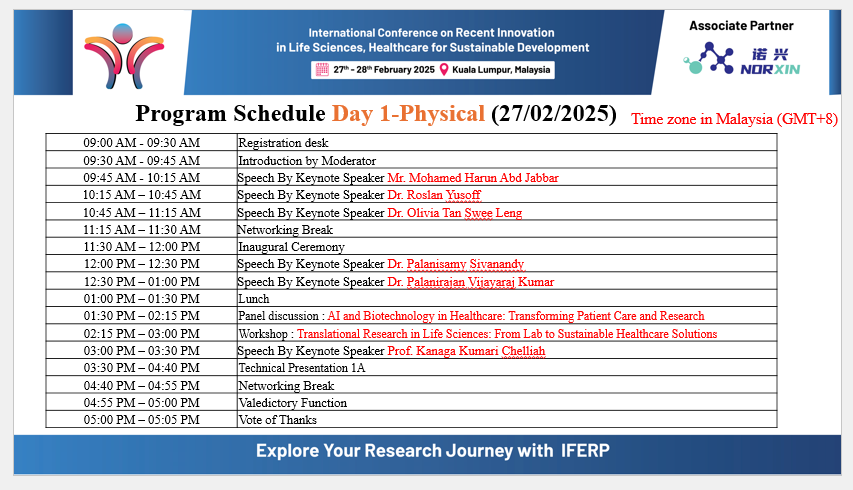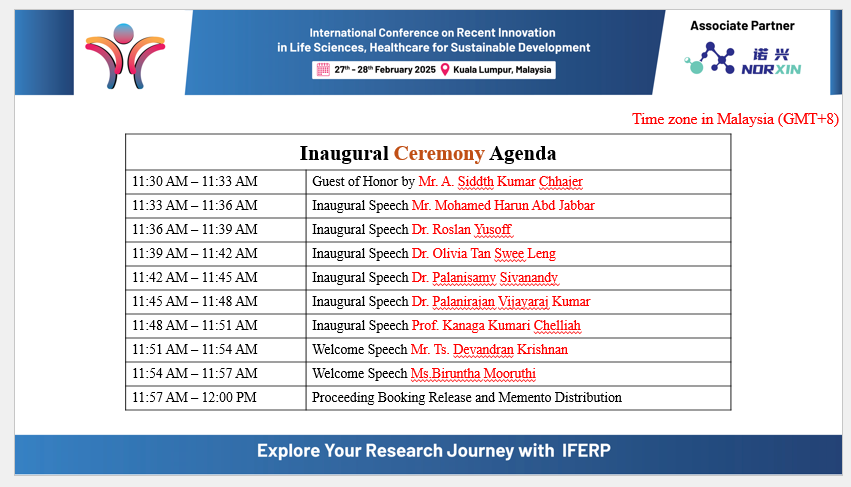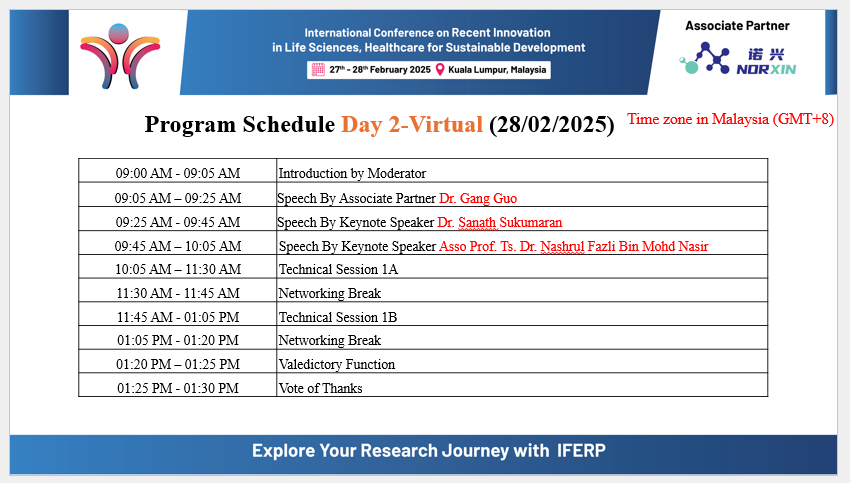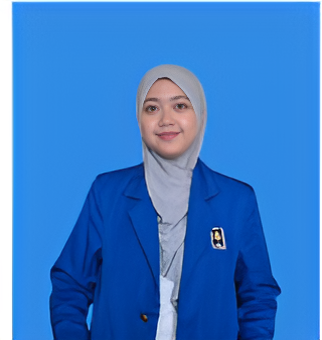Tentative Program
International Conference on Recent Innovation in Life Sciences, Healthcare for Sustainable Development (ICRILSH-2025)
Day 1 : 27th February 2025


Day 2 : 28th February 2025

Paper Title : Sustainable Engineering Designs for All and Training Schemes within Safe Green Health Tourism Facilities supporting environmental biotechnologies for floods and reclamation for fire protection in climatic crisis
Tilemachos K. Koliopoulos
Abstract :
Nowadays sustainable integrated infrastructures are necessary supporting sustainability within the growth of green circular economy providing particular solutions in climatic crisis to poverty, unemployment and safe building accommodation areas for war refugees from several parts in the world. This paper presents useful results for integrating sustainable engineering designs and life cycle assessments with comprehensive training schemes in safe green health tourism building facilities that can significantly enhance resilience to climatic crises. By focusing on environmental biotechnologies for flood reclamation, food security and fire protection, these facilities can not only provide safe and enjoyable experiences for tourists but also contribute positively to the local environment and community. Prefabricated cabins for fire protection are also analysed making useful
Conclusions. This holistic approach fosters long-term sustainability, enhances the health and well-being of visitors at safe green building facilities, cultural infrastructures, and promotes a culture of environmental stewardship. Useful conclusions are made for stakeholders supporting opportunities for inestors and creation of new jobs fighting Unemployment.
Keywords: sustainable engineering designs, fire protection, flood protection, safe qualitative green health tourism infrastructures, green circular economy growth, environmental biotechnologies, environmental health, food security, e-learning, design for all, ICT’s for technology education.
Paper Title : Students Against Diabetes: Educating Local Schools on Sugar Intake Management with Health Tech Support

Putri Ameilya
Abstract :
Diabetes mellitus (DM), a disease with a rising global prevalence, has created a significant economic and social problem, which has placed a financial burden on Indonesia’s National Health Insurance (BPJS Kesehatan). Despite the widespread prevalence, public awareness regarding complications from DM remains low which has caused an inadequate adoption of healthy lifestyle practices, such as regular blood sugar monitoring. The aim of this study is to develop effective health promotion strategies by involving health students who will take responsibility for schools surrounding the university, through programs integrated with regular health technology introductions. This study is a quantitative study using a descriptive survey method. The sampling technique was carried out by stratified random sampling by filling out a pretest and posttest survey on knowledge related to daily blood sugar level management and the use of technology for its calculation. The results showed that the role of health students in educating others about daily blood glucose management, supported by the use of technology such as mobile applications or AI-based tools can increase the knowledge of students at each level: elementary school, junior high school, and senior high school. Enhancing knowledge regarding diabetes mellitus, particularly in blood sugar level management, can help prevent the onset of DM and mitigate its complications, which can contribute to decreasing its prevalence. This supports the government in building Sustainable Development Goal 3 on healthy and prosperous living.
Keywords: Diabetes Melitus, Health Promotion, Role of Student, Health Technology.
Important Alert:


